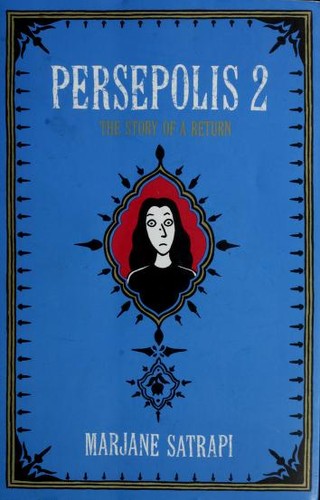Review of 'Persepolis 2: The Story of a Return (Persepolis #3-4)' on 'Goodreads'
4 stars
Reading through the reviews for this book I really have to feel sorry for it. It's almost like being the older less attractive sister to a child prodigy, even if it did come second. It's just really hard to live up to the kinds of expectations that people have for you coming off of such an appealing book as Persepolis 1. That said, I would argue that the only real issue with this book is reader expectations. Even on a second read through, I found just as much thought provoking content in this, the "lesser" sister as I did in the original.
As I said in both my review for Persepolis 1 and Embroideries, a big chunk of the reason that people find the first book oh so much more amazing is because it is about a sexually innocent little girl! Even die hard sexists can get behind such a winsome little girl character from time to time because per-pubecent as they are, they are yet "untainted". So the fact that her popularity plummets after her story hits puberty doesn't really surprise me at all.
On top of that, this sequel is also a dramatically different type of story from the first. Rather than experiencing the violence going on in her homeland first-hand, Satrapi has relocated to Europe, where she gets her first real taste of western society and experiences a lot of adolescent angst. This volume is much lighter on both spiritual and political elements, although she does do a lot of political reading here and there.
While this volume felt like it spent a lot less time educating me about the politics and history of her geographic homeland, I felt like I still had a lot to learn from it on a much more personal level.
A) In a culture that sometimes seems to worship at the feet of senseless violence, I find it very interesting to read works by people who actually experience violence.
B) How does one deal with caring about violence that is happening far away from us?
C) How does one deal with being lumped together with radical extremists?
On top of that Satrapi has continued to bring more and more skill and nuance to her work both artistically and in the way it deals with topics. Satrapi, in the tradition of all good memoirs I suppose, allows herself to be extremely vulnerable in this work. Showing a lot of things that don't set her in the best light. Particularly one incident where she scapegoats an innocent bystander to escape the culture police. We get to see Satrapi, warts and all, and I for one feel richer for the experience.

